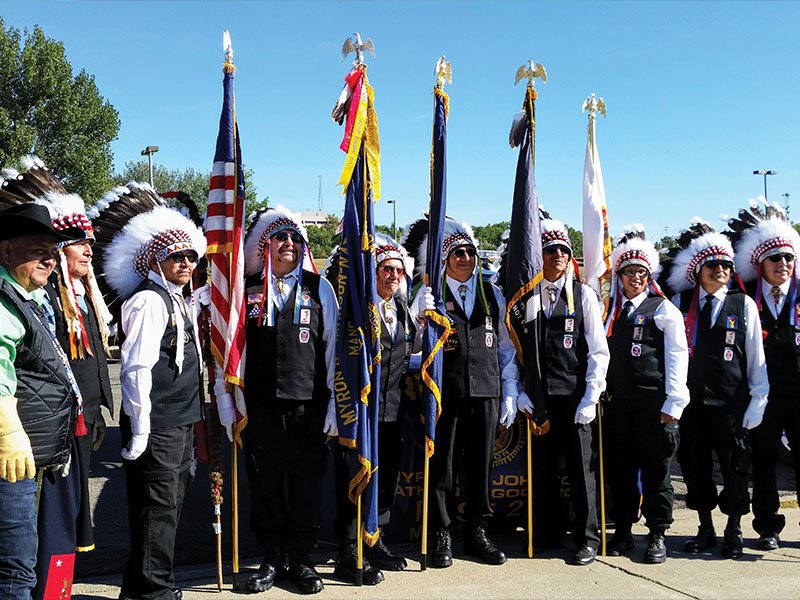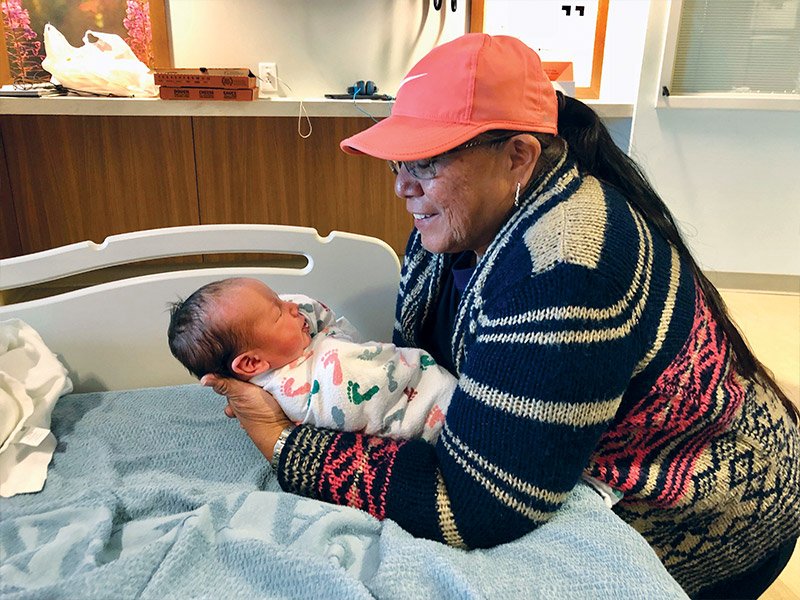
Our Path Forward
Creating a Path to Self-Sufficiency
Despite our land losses, through a diversified economy and natural resource revenues, we have made great strides. The MHA Nation provides essential services for tribal members and the surrounding community, working every day to revitalize our self-sufficiency. Over the past decade, oil and gas revenue have helped us provide:
Public Infrastructure
Full-time employment for more than 1,100 tribal members.
A Public Safety and Judicial Center, housing 35 law enforcement officers.
A 911-dispatch center and MHA Nation tribal court.
$120 million toward road repair and improvements.
8.68 acres of land in Las Vegas for future development.
The Native Green Grow Greenhouse, a carbon recapture facility.
Healthcare
8,558 COVID-19 vaccines: 4,872 MHA enrolled/3,686 non-enrolled.*
18,927 COVID-19 tests administered.*
$35 million in annual health insurance for all 16,165 tribal members.
$25 million to build the Good Road Recovery Center for treating substance abuse.
Brand new transitional housing services in Bismarck at the Healing Hearts Lodge.
Full-service primary care at the Elbowoods Memorial Health Center.
Dental and kidney dialysis centers in New Town.
Education and Culture
The MHA Interpretive Center for culture, performing arts, education and community.
More than $16 million in early childhood and secondary education.
A $10 million sports complex at Parshall High School.
Higher education funding for over 2,000 tribal members.
Food sovereignty and expanding agriculture at the Native Green Grow Greenhouse.
Language revitalization for three ancestral languages.
We are creating future leaders and community contributors. Education and culture are integral to our identity and our journey back to self-reliance. By having access to our rightful resources, we can support our people and return to a self-sufficient way of life, like our ancestors.
“Our ancestors created a thriving river economy, traveling up and down the river to trade with neighboring tribes. They lived independently and freely; they relied only on themselves and the lands and waters to provide what they needed. Since our ancestral homelands were flooded, we have been working to recover our way of life. It hasn’t been an easy road but the recognition of our mineral rights, which are ours by law, would help set us on a path to greater self-sufficiency so we can live as our ancestors did.”
— Mark Fox, Tribal Chairman, MHA Nation
The Bakken Oil development and subsequent disparities
Asthma
Asthma and respiratory complications are highly common for those living in the Fort Berthold Reservation
Violent Crime
Murder and violent crime has increased dramatically contributing to the 5,712 Missing and Murdered Indigenous Women and Girls reported in the U.S. in 2016.
Substance abuse and addiction
Substance abuse and addiction rates have increased throughout the reservation, including deadly opioid use, as drug cartels target the Fort Berthold community.
Traffic Deaths
Truck traffic and road destruction is rampant, causing tribal member deaths on reservation roads to jump by nearly 500 percent.
Crime Rates
Crime rates are up throughout the Fort Berthold Reservation, specifically in drug and sex trafficking, domestic violence, and homicide
COVID-19 Spread
COVID-19 pandemic spread and increased risk to our elder and immunocompromised members with non-tribal oil development.
But as North Dakota prospers from oil and gas development, government agencies have attempted to take away MHA Nation’s mineral rights below the Missouri on our treaty protected land.
“Since 2008, the oil industry has brought millions of dollars and thousands of new jobs. But on our reservation, we’ve also seen a huge increase in oil rig traffic that takes a toll on our roads and infrastructure. One estimate shows an increase in truck traffic of 600%.”
— Mervin Packineau, Treasurer, MHA Nation
We are survivors still at risk
As our lands were taken, our communities uprooted, and our culture and way of life degraded, our people have faced daunting obstacles to recovering our health and prosperity on Fort Berthold. And now, we must continue to prioritize our health and safety while navigating a global pandemic.
COVID-19
1,053 positive cases, 958 recovered, 2 hospitalizations, 19 deaths.*
Type 2 diabetes
200 percent higher than the national average.
Youth Poverty
34% of young people live with less than $2 a day.
Education
89% less likely to complete a bachelor’s degree than the national average.
Poverty
87% higher than the national average.
Housing
900+ families forced to relocate after Garrison Dam flood.
Income
12.6% lower than the national average.
Health care
$100 million annual cost to the tribe.
Life Expectancy
60.64 years tribal member average vs. 78.7 years national average.
* COVID-19 updates as of October 4, 2021.




